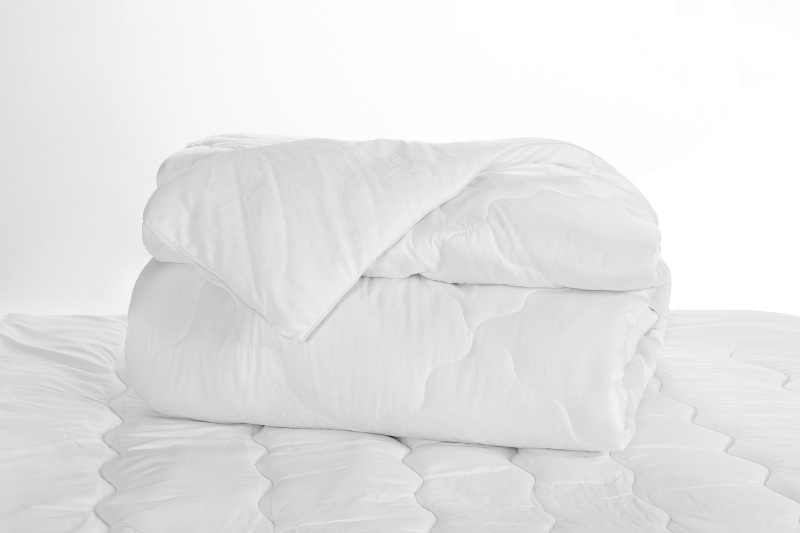Nothing is better than getting into a bed made with freshly washed sheets.
This isn’t all in our heads either! According to the Sleep Foundation, regularly washing your duvet and sheets is significant in designing the ideal bedroom for sleep.
Clean sheets can help you sleep better and wake up refreshed and ready for the day ahead.
But how often should you wash your duvet cover? Should you wash it weekly or monthly? And why is regularly washing your duvet cover necessary? Keep reading to find out!
How Often Should You Wash Your Duvet Cover?
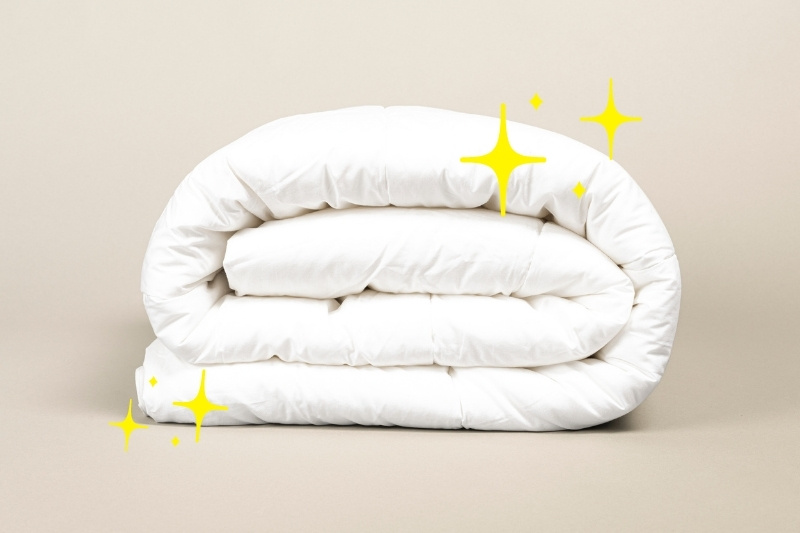
Most people should wash their duvet cover once per fortnight. This removes the dirt and sweat that has built up on your bedding as you sleep.
You wouldn’t wear the same jumper every day for two weeks, so you shouldn’t wash your duvet cover less than this!
Nevertheless, this is just a general rule of thumb.
If you use a top sheet (a flat sheet that sits between you and your duvet), you may be able to extend the time between washes.
Likewise, if you use blankets beneath your duvet during winter, waiting three weeks between washes should suffice.
On the other hand, we recommend washing your duvet cover once a week during the summer months, as you’re more likely to sweat in the night. The same applies to people dealing with night sweats or hot flushes.
If you let pets sleep on your bed or have children climbing and jumping on your bed, a once-a-week wash is again a much better option.
Why Is Washing Your Duvet Cover Important?
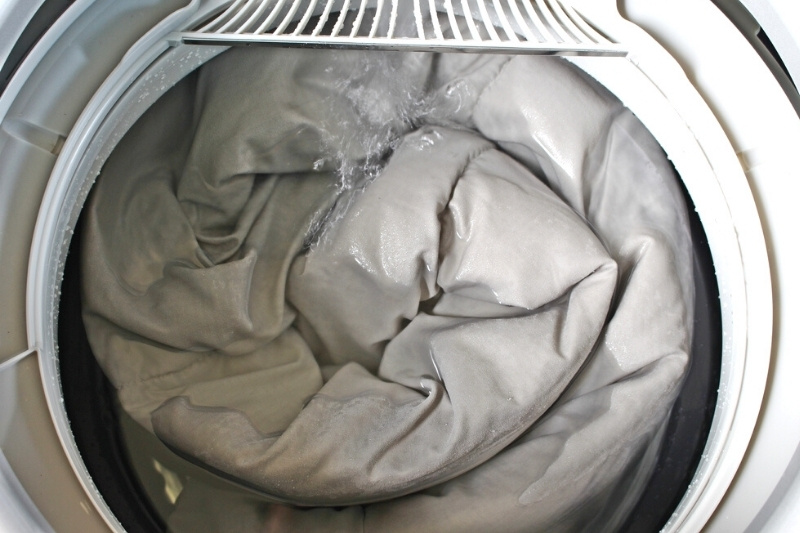
Washing your duvet cover every one to three weeks (depending on your situation) might seem excessive.
However, regularly washing your bedding is essential for maintaining a hygienic sleep environment and carries three major benefits:
1. Removes dirt & sweat
As we sleep, we shed all sorts of things onto our sheets. This includes dirt, dead skin, body oils, and sweat.
This dirt and sweat accumulate mainly on the sheet you’re laying on, thanks to gravity, but your duvet cover also gets grubby pretty quickly.
Regularly washing your duvet cover prevents these substances from accumulating to unsanitary amounts.
2. Removes dust mites
Dust mites are microscopic creatures found in all homes, feeding on dead skin cells. If you don’t wash your duvet regularly, thousands of dust mites will accumulate on the fabric, with plenty of dead skin for them to feed on.
The presence of dust mites on your sheets won’t necessarily cause harm, but the thought of sharing your bed with thousands of tiny creatures is pretty disgusting.
Dust mites are not parasites and won’t necessarily cause harm if you share your bed with them. Yet many people suffer from dust mite allergies from inhaling dust that contains decaying mites, urine and faeces.
This can cause common allergy symptoms, including sneezing, skin rashes, and irritation – providing even more reason to wash these creatures away.
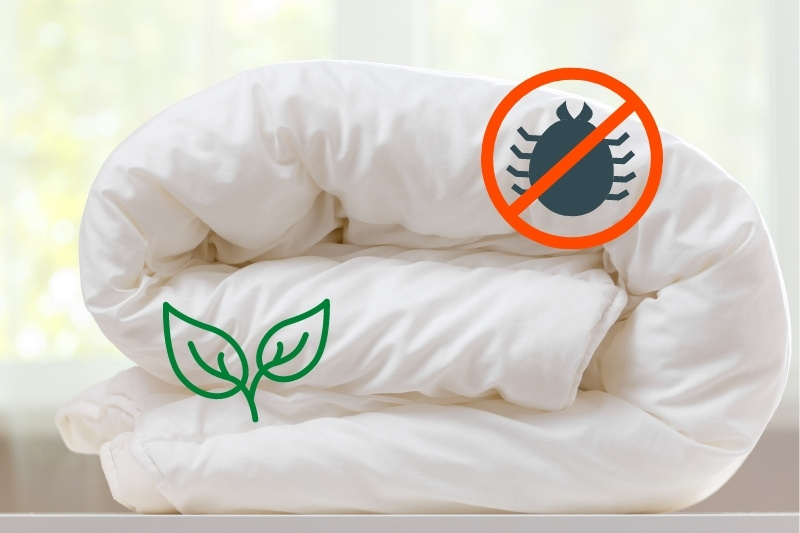
3. Relieves allergy symptoms
Dust mite allergies are not the only allergy that can be relieved with regular washing; washing removes all allergens that have accumulated on your sheets.
For example, pollen may get on your duvet in summer, causing you to cough and sneeze.
Another common human allergy is pet dander. If you have a cat or a dog and let them sleep on your bed, dander and hair will soon accumulate.
Before you know it, you’ll be coughing and sneezing, unable to sleep! If you are an allergy sufferer, washing your bedding (duvet covers, pillowcases, and bedsheets) once per week should help relieve your symptoms.
3. Improves sleep quality
Having clean, fresh-smelling sheets also improves sleep quality. One study from Sleepbetter.org reported that seven out of ten people interviewed who changed their sheets regularly got a more comfortable night’s sleep.
With allergy-causing dust mites, dander, and pollen also removed, sleep quality improves yet again.
Sleep expert Ilene Rosen also suggests that having a cleaner bed makes it easier to fall back asleep when you wake up or go through light sleep at night. This means you will not only fall asleep more quickly but wake up feeling more refreshed.
How Do You Wash a Duvet Cover?

Washing your duvet cover every one to three weeks might seem like a chore, but it is relatively straightforward.
Step 1: Check the duvet cover label
Before you begin washing your duvet cover, check the laundry symbols and instructions on the label. Bedding can be made from various, including cotton, silk, and poly-cotton blends, each of which has its own washing requirements.
Check to see if there are any special washing requirements or temperature limitations.
Step 2: Wash on a hot temperature cycle
Strip your bed and put your duvet cover in the washing machine on the hottest cycle that the material can handle with a high-quality washing detergent.
The ideal temperature for washing bedsheets is around 60°C, as this should kill all germs and bacteria.
A colder 40°C cycle is fine if the material can’t handle this heat. When using a cooler temperature, use a stronger detergent to help have a similar antibacterial effect.
When loading your washing machine, also bear in mind that your duvet cover is a large piece of material.
Washing your duvet cover, pillowcases, sheets, and blankets simultaneously is fine, but be careful not to overload your machine.
Step 3: Dry your duvet cover
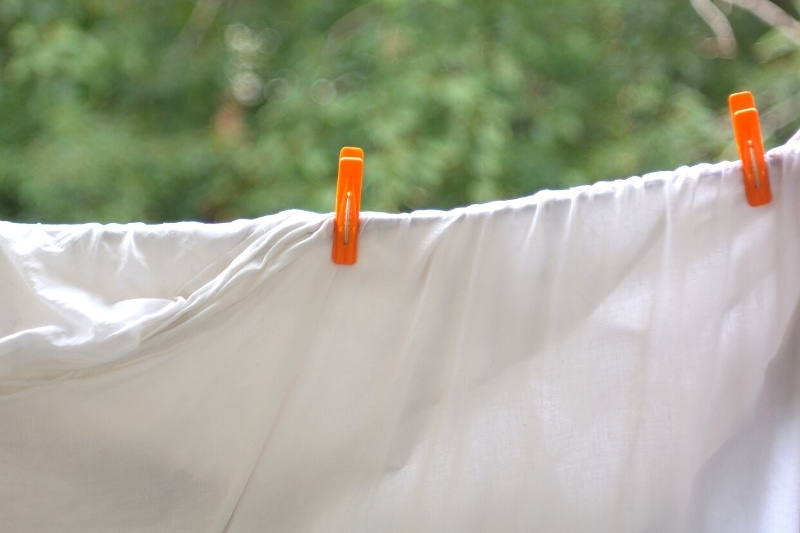
When the cycle has ended, remove your duvet cover from the machine and put it in the tumble dryer on low for around one hour.
Alternatively, hang your sheets outside to air dry. Or, if you’re lacking outside space, dry your bedsheets inside on a clothes airer, interior doors, or even a bannister.
As it can take several hours for your duvet cover to dry (especially if not using a tumble dryer), many people like having several sets of bedsheets.
This means you can strip and remake your bed at once rather than wait for your duvet to dry.

Hannah has a passion for cleaning. She worked her way around Australia by cleaning hostels in exchange for free accommodation and used her cleaning skills to bag a job as a chalet host for a luxury ski company in France.
